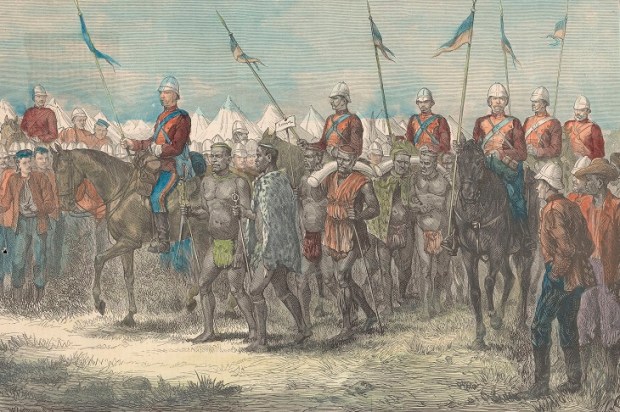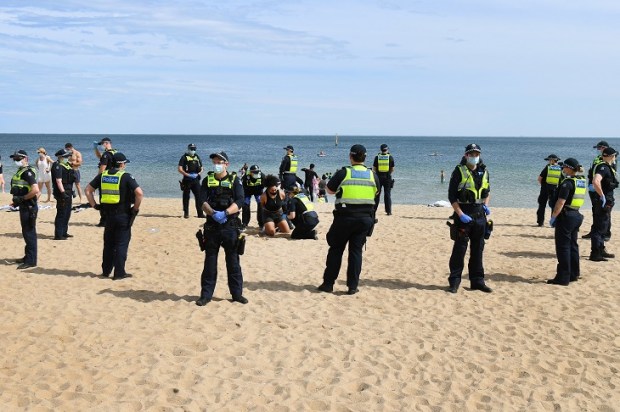Each of us is allotted at birth three score years and ten to make our mark on the world.
Some squander those years, some pass unnoticed, others leave a legacy soon forgotten, and a few blaze brightly throughout their lives and after.
Andrew James Molan will definitely be regarded in the latter category in life’s register.
A commanding presence with an intellect to match, no one was ever in any doubt about where they stood with Jim nor what he could, and did achieve.
His latter years and achievements are well known, but less is known of his beginnings, except by the select group of once young men who were, and remain, his Duntroon classmates.
From Melbourne’s CBD, the young Molan entered the Royal Military College, Duntroon in January 1968, a remarkable class by any measure.
They were the first cadets to receive bachelor degrees from UNSW on their graduation in December 1971, an arrangement initially regarded with some trepidation by the university, but which has since proved remarkably successful.
It was a tough, challenging environment, a mix of military and academic training with an emphasis on physical fitness and sport.
Despite the almost monastic poverty of their lives, they worked and played hard, creating an unbroken bond that has lasted 55 years.
It helped that Jim was a star ruckman on the Aussie Rules field, his solid aggression making him a formidable player.
It was then customary that new cadets were ‘introduced’ to Canberra’s social life in a torturous half-day’s entertainment called The Tennis Party, though only the most enthusiastic hosts and their female guests wielded racquet and ball.
Jim was fortunate having a cousin his age living in Canberra, so he invited her while she insisted on bringing her best friend from the then remote wastes of Lyons.
Soon Jim was being described as ‘the bachelor with a wife’, forming a lifelong bond with his partner Anne. A couple of youthful anecdotes reveal Jim’s robust approach to life.
On a training visit to Sydney coinciding with a multi-national naval exercise, Jim noticed a Canadian Navy Warrant Officer being evicted from one of Kings Cross popular, though less than salubrious watering holes.
‘Throw him out and you’ll have to throw me out with him!’ insisted Jim, the pair of them hitting the pavement together, where they were discovered sharing one of the two bottles of Bundaberg Rum the Canadian had under his arm.
Later during an experimental sojourn at the UNSW Kensington campus, when entering the lecture theatre for the first time Jim noticed a timid wee chap, wispy beard, Che Guevara t-shirt, beret, and moratorium badge who seemed apprehensive at the sight of the unwarranted intrusion by a bunch of Duntroon cadets.
Jim sat next to him, put a protective arm around his shoulder, whispering in his ear, ‘You’re mine, mate! I’ll look after you!’
His career, though distinguished, was far from usual.
Others will comment in detail on his military and political achievements, but a brief summary is instructive of the span of Jim’s career.
The McMahon government, having withdrawn Australia’s combat forces from Vietnam, made the 1971 Duntroon class the first in a couple of generations not to serve as junior officers on operations.
Jim went to the Pacific Islands Regiment, as close an experience as then possible to operational service, through regimental appointments, language training, flying training, command, and staff college, commanding at every level from platoon to Division, diplomatic appointments, culminating with a senior command in Iraq.
US Commander General David Petraeus was fulsome in his praise for Jim Molan, regarded by contemporaries as the individual with an unrivalled understanding of the application of firepower to ground, the fundamental principle of strategy and tactics.
Retirement was never a word in Jim’s vocabulary.
He joined other distinguished, senior military officers who transitioned to parliament, fighting with military precision a bitter pre-selection battle intended to deny him that role.
He effectively died in harness, for he believed he had much more to do, even in opposition.
Jim would regard his most significant achievements as his enduring marriage with Anne, their four children, and now six grandchildren.
He fought his ill health as he fought every other battle, with determination, grit, and courage, observing as always his class’s bastardised Latin motto, ‘Nil Bastardo Carborundum.’

























